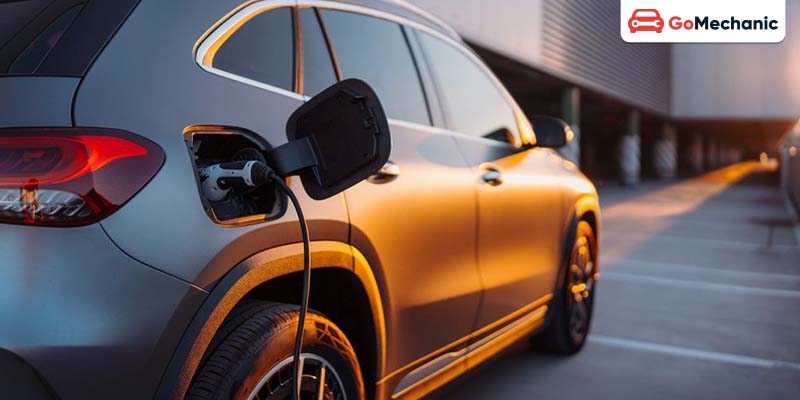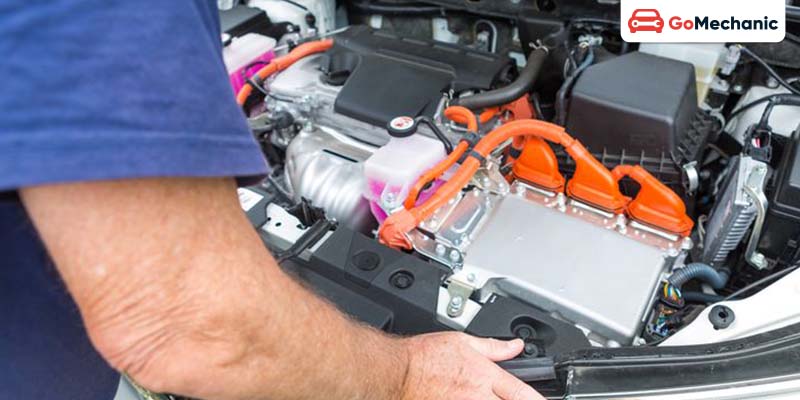When planning to buy a car, it’s normal to get confused as there are multiple options in the market today. On one hand, there are Internal Combustion Engine vehicles(Petrol/diesel), and on the other, Electric and Hybrids. While some people still prefer conventional ICE vehicles, some go for innovative EVs however, some like to stay in between to enjoy both the technologies and choose hybrid cars. If you are among the ones who prefer hybrids, or if you are planning to buy one, this blog is for you. In this blog, we will list the pros and cons of a hybrid car and compare it to ICE and electric vehicles.
What is a Hybrid Car?
A hybrid car is powered by both an Internal Combustion Engine and electric motors. There are two types of hybrids, one is a plug hybrid and the second is an unplug hybrid. Plug hybrids are those that you can charge through an electric plug and unplug hybrids are those that cannot be charged through a plug, they are charged through either regenerative braking or ICE.
Hybrid Cars: The Pros
- Fuel Efficiency

Hybrid cars offer an impressive fuel efficiency compared to a conventional Internal Combustion Engine vehicle. With the help of electric motors, handling the lower speed and initial acceleration, the load on the ICE engine transits and helps the car to offer a more than-average range, up to 30 km/l.
- Regenerative Braking
Hybrid cars, especially unplugged hybrids use regenerative braking technology which converts kinetic energy into electric power to charge the electric motor of the car. This process works when the car is performing on the ICE engine at an average speed which converts kinetic energy produced by the engine into electric power. In simple words, the electric motor is charged through the petrol/diesel engine without any additional output.
- Tax Benefits
Uttar Pradesh is the only state to provide tax benefits for buying a hybrid car, completely waiving the registration tax. However, the awareness of EVs and hybrids is on the increase each day, making hybrid consideration a great initiative for the future.
- Smoother Ride
A hybrid offers a smooth and quieter ride compared to an ICE vehicle. This fact comes true in city driving when the ICE engine turns off in slower traffic rides and the electric motors start their game. Moreover, the driving experience is elevated due to the soundless engine with less jerking.
Hybrid Cars: The Cons
- Higher Initial Cost
Regardless of the lower maintenance cost of hybrids, they come with an expensive initial cost tag compared to conventional ICE vehicles. Their high initial cost can make it difficult for budget-conscious buyers to purchase a hybrid.
- Battery Replacement

One of the biggest cons of a hybrid car is its battery replacement. After using it for around 10 to 15 years (200000km), the battery will get damaged due to basic wear and tear and aging and will need a replacement for continued use. In some cases, the battery can cost more than the car’s worth.
- Limited Electric Range
Most of the hybrids have a limited electric range hence they are a good option for city driving but not for long routes. Electric motors of hybrids work to a limited range when you consecutively stop and start your car. For long routes or highway driving, your hybrid will need frequent use of ICE.
- Monotonous Driving Experience
Hybrids are built to prioritize efficiency over performance which can demote the excitement to drive. If you have an average budget and want to enjoy driving, hybrids will not be a good option for you. However, if your budget is top of the line, then you can go for costly hybrids like the Toyota Camry.
Conclusion
Hybrid cars offer impressive fuel efficiency, smoother rides, and tax benefits which make them a great choice for city driving. However, they come with higher initial costs, potential battery replacement expenses, and limited electric range, which can deter budget-conscious buyers. If you value efficiency and have the budget, a hybrid can be a fantastic choice, but for performance enthusiasts or long-distance drivers, traditional ICE vehicles or EVs might be better options. Choose wisely based on your needs and budget.





